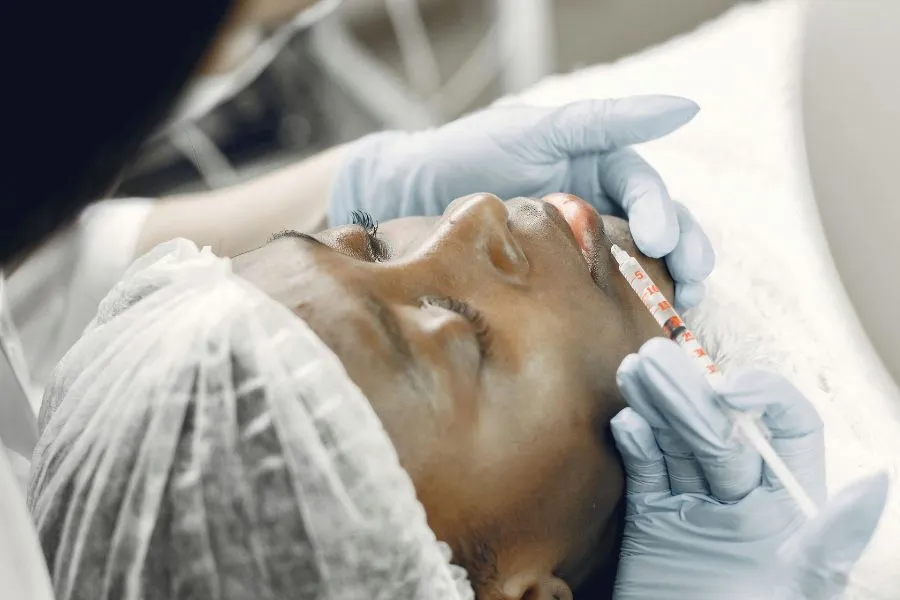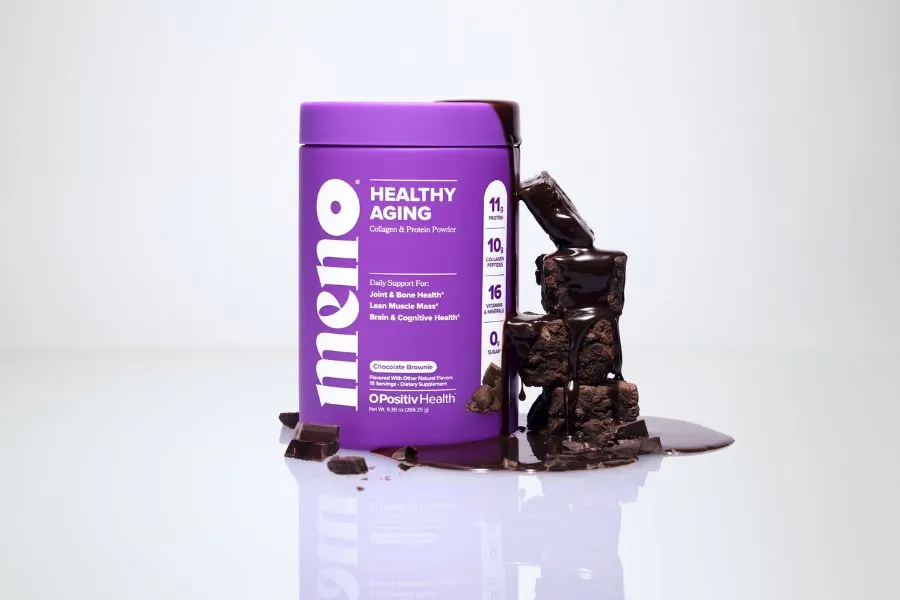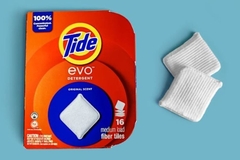Collagen crossroads: Peptides straddle aging, wellness and skepticism
Key takeaways
- Collagen peptides are trusted by consumers, but confusion around the effectiveness of oral versus topical formats remains.
- The beauty market is shifting from anti-aging to a broader healthy aging narrative.
- Sourcing and sustainability challenges are driving interest in lab-grown and vegan alternatives.

Collagen is increasingly becoming a multi-category beauty and wellness solution, spanning skin care, hair care, and medical aesthetics. However, despite its popularity, consumers are still skeptical about the ingredient’s formats, origins, and overall health benefits.
Innova Market Insights data indicates that Collagen is one of the most trusted anti-aging skin ingredients globally. It reports that 50% of global consumers trust collagen as the most effective option.
The market researcher’s data also suggests that the number of personal care product launches containing collagen grew by 15% between July 2020 and June 2025.
Personal Care Insights speaks with experts from wellness brand, Shed, and global supplier of collagen proteins, Gelita, about the role collagen plays in the beauty market’s shift from prioritizing “anti-aging” claims toward the broader concept of “healthy aging.”
“Collagen peptides are increasingly positioned as a key component in the broader conversation around healthy and active aging. This trend is driven by growing awareness of the role that collagen plays in maintaining the body’s structural integrity,” Angie Rimel, marketing manager at Gelita, tells us.
By integrating collagen peptides into their health routines, consumers are able to tackle the challenges of aging, supporting their ambition to stay active and healthy for as long as possible.
“This positioning aligns well with the growing consumer demand for natural and proactive health management strategies,” says Rimel.
Topical vs. oral
Skin care continues to dominate collagen innovation. Innova Market Insights’ data shows that 64% of collagen-containing product launches are in the skin care category.
 Maypharm introduced Skincolla, a recombinant human collagen filler. According to Kory Morse, lead education specialist at Shed, the effectiveness of collagen peptides differs when they are taken orally versus applied topically.
Maypharm introduced Skincolla, a recombinant human collagen filler. According to Kory Morse, lead education specialist at Shed, the effectiveness of collagen peptides differs when they are taken orally versus applied topically.
“Oral collagen has the strongest evidence: once digested, peptides stimulate collagen production in skin, joints, and connective tissue,” she says.
While most products focus on collagen types I and III for skin and hair, Morse says type II collagen is highly effective for cartilage and joint health, which makes it a differentiator for longevity.
“Research shows hydrolyzed collagen can support joint function, tendon recovery, and skin hydration, making it a functional protein for mobility and resilience.”
As a significant component of the skin, topical collagen works by helping maintain skin elasticity and hydration. Rimel says: “Topical collagen is beneficial for immediate, visible improvements and surface-level hydration, making it a popular choice in daily skin care routines.”
While both collagen peptides and other trending peptides play significant roles in beauty and skin care, their mechanisms and benefits differ. “Collagen peptides are more about enhancing natural processes and providing lasting changes,” Rimel explains.
According to Morse, topical collagen hydrates the skin’s surface, but the large particles cannot rebuild deeper skin and organ structures. “Many consumers still confuse [oral and topical collagen], so education is key.”
Rimel echoes this: “While there is a segment of well-informed consumers, there remains a broader need for education on the distinct benefits and uses of oral versus topical collagen applications. Brands have an opportunity to bridge this knowledge gap through clear, informative communication and engagement with their customer base.”
Wellness from within
Collagen peptides have a strong role in the supplements space. They are marketed as essential tools for supporting healthy and active aging from within.
“Sarcopenia, or the loss of muscle mass with age, can significantly reduce seniors’ quality of life and independence. Collagen peptides are promoted for their role in promoting muscle health, helping older adults maintain strength and functionality,” Rimel tells us.
Brands such as women’s health brand O Positiv leverage types I and III collagen for its healthy aging collagen and protein powder. O Positiv’s product is formulated specifically to support women through their menopausal journey.
“After 40, women begin losing muscle mass at a faster rate,” explains Dr. Roxanne Pero from O Positiv’s medical board of directors. O Positiv launched a menopause-focused collagen and protein powder.
O Positiv launched a menopause-focused collagen and protein powder.
“When our community told us that most collagen and protein powders weren’t designed for aging women’s needs, we saw an opportunity to change that.”
The company’s MENO Healthy Aging Collagen and Protein Powder is touted to deliver protein, collagen, and over 10 superfood ingredients in one daily scoop. The formula supports muscle, bone, joint, brain, and skin health, “so women over 40 can feel strong, vibrant, and confident at every age.”
Shifting sources
Collagen is traditionally derived from bovine or marine sources. However, China-based researchers studying jellyfish-derived collagen warned that there are safety concerns linked to using collagen from marine sources, as they may contain heavy metals.
The presence of toxic metals and metalloids poses health risks to consumers after long-term exposure.
Morse explains that, despite the popularity of collagen peptides, there remains a segment of consumers who are skeptical about their purported health benefits.
“This skepticism can be due to the varying quality of products in the market, misleading claims, or a general distrust of supplements,” she says.
Rimmel confirms that the biggest challenges for sourcing collagen are sustainability and transparency. She attributes this to most collagen coming from animal or marine byproducts and the lack of standardization in quality.
 Most products focus on collagen types I and III for skin and hair. Against this backdrop, lab-made or human-derived collagens have emerged as safer, standardized, and environmentally friendly alternatives.
Most products focus on collagen types I and III for skin and hair. Against this backdrop, lab-made or human-derived collagens have emerged as safer, standardized, and environmentally friendly alternatives.
Maypharm, a South Korean innovator in medical and dermo-cosmetic products, launched Skincolla, a recombinant human collagen filler, to address the demand for animal-free collagen.
Recombinant human collagen is lab-made collagen produced using genetic engineering. It mimics the natural collagen found in human skin, bones, and connective tissues. Scientists insert human collagen genes into microorganisms, such as bacteria or yeast, to create this collagen without using animal or human tissue.
Skincolla’s science-backed formula is considered a safer and more ethical alternative to animal-derived collagen, providing a lower risk of allergic reactions or disease transmission.
Collagen’s growing presence across beauty and wellness categories reflects its established consumer trust and indicates that the search for more sustainable, science-driven solutions is still ongoing.
Morse concludes: “Collagen peptides are no longer seen as just a cosmetic supplement; they represent a science-backed approach to supporting strength, mobility, and resilience across the lifespan.”













